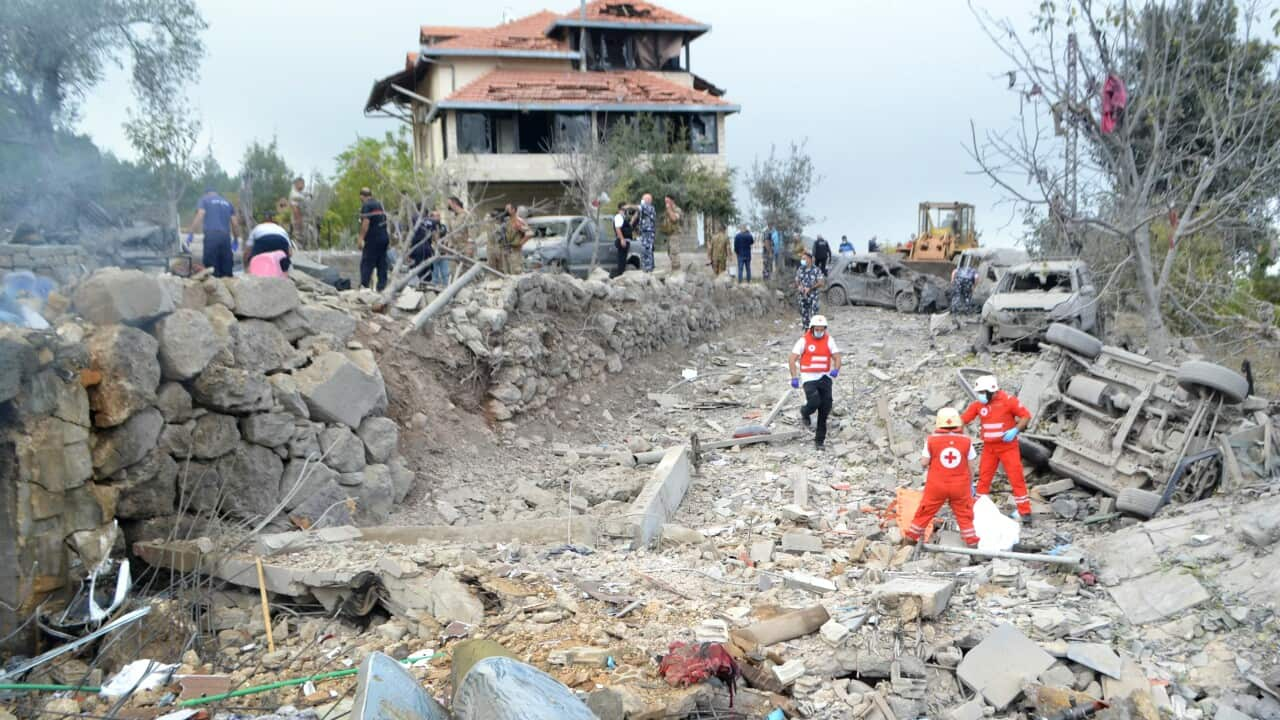Key Points
- A Hezbollah chief says "the solution is a ceasefire" as Israel escalates its bombardment of Lebanon.
- The US says Israel must take steps to improve the humanitarian situation in Gaza, or risk an arms embargo.
- Israeli strikes killed at least 50 Palestinians across Gaza, as Israel continues its military siege of Jabalia.
Hezbollah's deputy chief Naim Qassem has called for a ceasefire as conflict escalates across Lebanon, but said the group would inflict "pain" on Israel if it did not agree.
"The solution is a ceasefire, we are not speaking from a position of weakness, if the Israelis do not want that, we will continue," Qassem said in a recorded speech on Tuesday.
There was no immediate comment from Israel, which says its operation in Lebanon aims to secure the return of tens of thousands of residents forced to flee their homes in northern Israel because of Hezbollah attacks.
On Monday, Prime Minister Benjamin Netanyahu vowed that Israel would continue to attack Hezbollah "without mercy, everywhere in Lebanon — including Beirut".
The UN refugee agency's Middle East director, Rema Jamous Imseis, said new Israeli evacuation orders to 20 villages in southern Lebanon meant over a quarter of the country was now affected.
"People are heeding these calls to evacuate, and they're fleeing with almost nothing," she told a briefing in Geneva.
Israeli strikes have killed at least 2,350 people over the last year, the Lebanese health ministry said, and more than 1.2 million people in Lebanon have been displaced.
A US ultimatum for Israel
US secretary of state Antony Blinken and defence secretary Lloyd Austin said Israel must take steps in the next month to improve the humanitarian situation in Gaza to avoid legal action involving US military aid, in a letter penned to Israeli officials.
"We are writing now to underscore the US government's deep concern over the deteriorating humanitarian situation in Gaza, and seek urgent and sustained actions by your government this month to reverse this trajectory," they wrote in a letter to their Israeli counterparts, posted by an Axios reporter on X.
It outlined specific steps Israel must take within 30 days, including enabling a minimum of 350 trucks to enter Gaza per day, instituting pauses in fighting to allow aid delivery and rescinding evacuation orders to Palestinian civilians when there is no operational need.
"Failure to demonstrate a sustained commitment to implementing and maintaining these measures may have implications for US policy ... and relevant US law," the letter said.
It cited Section 620i of the US Foreign Assistance Act, which prohibits military aid to countries that impede delivery of US humanitarian assistance.
Israeli strikes in Jabalia continue
Israeli military strikes killed at least 50 Palestinians across the Gaza Strip on Tuesday, as Israel continues its military siege in the Jabalia refugee camp and its vicinity.
Palestinian health officials said at least 17 people were killed by Israeli fire near Al-Falouja in Jabalia, the largest of Gaza's eight historic refugee camps, while 10 others were killed in Bani Suhaila in eastern Khan Younis in the south when an Israeli missile struck a house.
Earlier on Tuesday, an Israeli airstrike destroyed three houses in the Sabra suburb of Gaza City, and the local civil emergency service said they recovered two bodies from the site, while the search continued for 12 other people who were believed to have been in the houses at the time.
Eight others were killed when a house was struck in the Nuseirat camp in central Gaza.
The Gaza health ministry said one doctor was killed when he tried to help people wounded by Israeli strikes in Al-Falouja in Jabalia.
It added that several medics were wounded when their ambulance came under Israeli fire in the northern and southern Gaza Strip.











